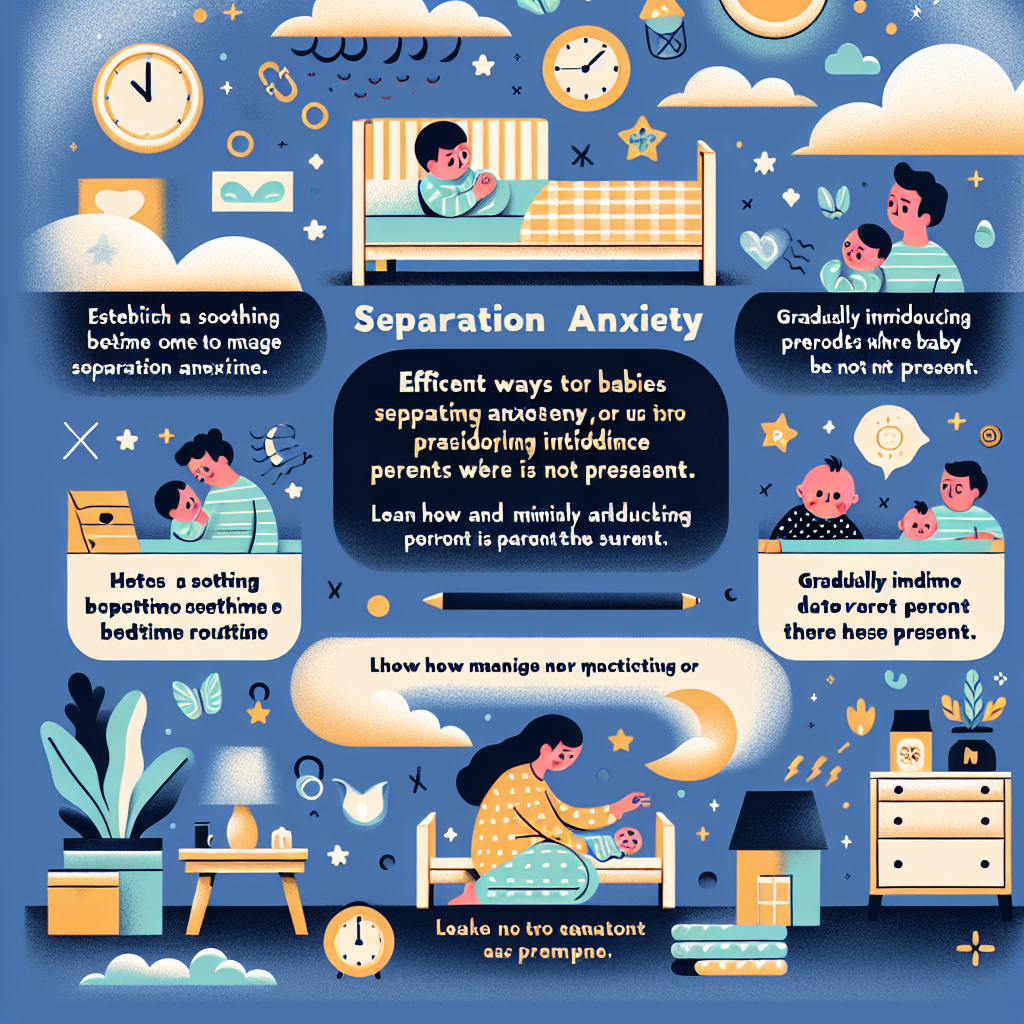Alleviating Separation Anxiety in Babies: Effective Tricks
What Is Separation Anxiety in Babies?
Separation anxiety is a normal stage in the development of babies and young children, characterized by specific fears of separation from parents or caregivers. This can usually start around the age of 6 months and can persist until the age of 3 years. Symptoms of separation anxiety include crying when the parent leaves the room, extreme clinginess or reluctance to be with anyone other than the parent.
The Importance of Understanding Separation Anxiety
Understanding separation anxiety is crucial to being able to provide the support and comfort your child needs during this transition period. By recognizing the signs and providing the right tools, you can help children navigate these fears and develop independence in a healthy way.
Strategies for Alleviating Separation Anxiety
- Sleep Routine : Establish a consistent sleep routine. This provides predictability and safety, helping the child understand that the separation is temporary and that you will return.
- Short Duration Exercises : Start with short splits. Give the child time to get used to the idea of spending time without a parent, gradually increasing the duration of the absence.
- Comforting Objects : Provide comforting objects such as blankets or favorite toys. They can be very helpful in providing a sense of security in your absence.
- Consistent Interaction : Make sure that when you are with your child, you interact with them in a consistent and positive way. The quality of time spent together can influence how the child handles the separation.
Additional Tips for Parents
- Goodbye Fast : Learn to say "goodbye" in a quick and happy way. The child is sensitive to your emotions, so avoid making it seem like you are anxious or upset too.
- Open Dialogue : Talk openly with your child about where you're going and reassure them that you'll be back. Even if he doesn't fully understand, your soothing tone can help him feel more secure.
- Adaptability : Be adaptable to your child's response - sometimes you may need to postpone plans if your child is extremely stressed.
Balancing Attachment and Independence
It strikes the perfect balance between being a point of safety and encouraging independence. A secure attachment will help give your child space to explore and learn that it's okay to be alone for short periods of time.
When to Seek Professional Help?
If separation anxiety seems to intensify, or persists beyond the age of 3, it may be time to seek professional help. A specialist can provide additional strategies and support in dealing with these challenges.
Conclusion
Separation anxiety is a natural phase in child development, but navigating it can be difficult for both children and parents. With the right strategies and lots of patience and love, you can help ease this stage and encourage independent growth and learning. If you feel you need more advice or assistance, don't hesitate to contact a professional. Together, you can make every breakup a temporary "goodbye" and a happy "welcome home."














































































































































